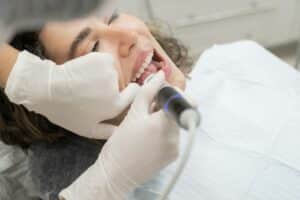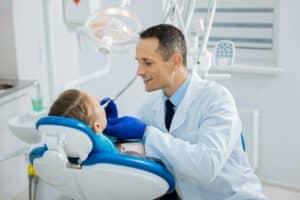It can happen at a moment’s notice. A quick bite down and all of a sudden a tooth is broken in several pieces. This is the type of emergency dental issue that many thousands of Canadians encounter each year. The majority are unprepared for this type of dental care challenge when it arises. By utilizing the following three tips, Canadians can improve the results of their emergency dental treatment and enjoy the remaining winter-time with family and friends.
1) Conduct a Quick Review and Contact Dentist’s Office Immediately
When responding to a dental emergency, the speed of the response is one of the critical factors in the success of any future treatment. But before contacting their local dentist, patients should first analyze the extent of their emergency. It’s important to know whether the problem is a chipped tooth, a painful abscess or a lost filling, for example. Each of these emergency issues is separated by the extent of any future damage.
A cracked tooth might be repaired a week after it occurs, while a possible jaw fracture should be reviewed immediately to prevent permanent damage and excruciating pain. Once the problem has been assessed and determined to be an emergency, patients must contact the dentist’s office to schedule an appointment immediately.
2) Only Use Dentist-Recommended Pharmaceuticals
Dental patients can often exacerbate their dental emergency by using pharmaceutical products that have not been recommended by a professional within the dental field. An example often used within the dental care field is aspirin. Many patients take aspirin when they have a toothache or a broken tooth. But aspirin can actually inflame gum tissue in some patients. Therefore, it’s recommended to only use pharmaceutical products when they’ve been recommended by an emergency dentistry specialist. This can help patients reduce their recovery period and mitigate risks associated with adding to their dental issues.
3) Rinse Detached Teeth in Water before the Emergency Visit
For those who have had teeth knocked out of their mouth, it’s important to rinse the tooth or teeth in cold water and place it in a cup of milk as quickly as possible and before visiting the dentist’s emergency clinic. This will prevent the tooth from drying during the journey. Oftentimes, those who lose their teeth try to scrub dirt and other contaminants from the tooth before they store it for traveling to their dentist. However, scrubbing teeth can remove integral tissue.
By acting quickly and following the advice of the professionals leading the dental field, patients can achieve exceptional results with their emergency dental care. To learn more on how to respond during a dental care emergency, speak with our expert emergency dental treatment team today.


